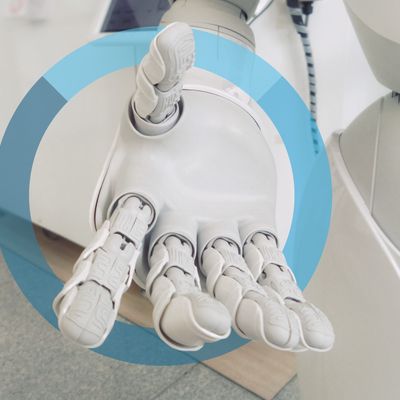Master Data Analyst
About Us: Our client is a leading company in the Consumer Packaged Goods (CPG) industry, dedicated to delivering high-quality products to their customers for over 75 years. We are seeking a highly skilled and experienced Senior NetSuite Manager to join their dynamic team. Key Responsibilities: Oversee and manage the creation, maintenance, and governance of master data for materials, customers, vendors, and pricing records in ERP systems (e.g., Netsuite, SAP). Collaborate with cross-functional teams (supply chain, marketing, finance, sales, and IT) to ensure master data alignment and accuracy. Support new product introductions (NPIs) and product lifecycle management by ensuring timely and accurate data setup. Monitor data quality, identify inconsistencies, and implement corrective actions. Develop and maintain data standards, documentation, and workflows to ensure compliance with internal and regulatory requirements. Provide training and support to data owners and users on master data policies and processes. Generate regular reports and dashboards to track data accuracy and performance metrics. Participate in projects related to system enhancements, ERP upgrades, and data migrations. Qualifications: Bachelor's degree in Business, Information Systems, Supply Chain, or a related field. 3+ years of experience in a Master Data Management or Data Analyst role, preferably within the CPG industry. Proficient in ERP systems such as Netsuite, SAP, or similar platforms. Strong understanding of CPG supply chain and commercial processes. Advanced Excel skills; experience with data tools like Power BI, Alteryx, or SQL is a plus. Excellent analytical, organizational, and problem-solving skills. Strong attention to detail and a passion for data integrity. Ability to work effectively in a cross-functional, fast-paced environment. Preferred Qualifications: Experience with product lifecycle management (PLM) systems. Familiarity with GS1 standards, UPCs, and retailer-specific data requirements.
US$90000 - US$110000 per year
New York
Apply
Data Scientist III
Glocomms has partnered with a global tech organization dedicated to transforming lives through spoken-word entertainment. They work with top creators to produce and share audio stories with millions of listeners worldwide. In this role, you will lead the core playback logic from start to finish, ensuring the best playback experience across Android, iOS, and Web platforms. This includes managing content delivery infrastructure, security, digital rights management, and real-time processing of listening data. You'll also spearhead initiatives to advance the state of the art in Internet Audio Team Overview Our data science team partners with marketing, content, product, and technology teams to solve challenges using advanced ML, DL, and NLP techniques. We operate in an agile environment, managing the lifecycle of research and model development. Responsibilities Optimize customer interactions with validated models Create data engineering pipelines Innovate with cutting-edge applications Develop data visualizations Collaborate with data scientists, ML experts, and engineers Share ideas and learn from the team Basic Qualifications Experience in modeling and research design MS in a quantitative field or PhD with relevant experience Proficiency in SQL and Python Experience with AWS and Big Data Engineering Agile Software Development experience Preferred Qualifications Expertise in paid and organic marketing Experience with container platforms and streaming data Proficiency in R, RShiny, and Scala
Negotiable
Newark
Apply
Applied Scientist III
Applied Scientist III Glocomms has partnered with a global tech organization dedicated to transforming lives through spoken-word entertainment. They work with top creators to produce and share audio stories with millions of listeners worldwide. In this role, you will lead the core playback logic from start to finish, ensuring the best playback experience across Android, iOS, and Web platforms. This includes managing content delivery infrastructure, security, digital rights management, and real-time processing of listening data. You'll also spearhead initiatives to advance the state of the art in Internet Audio. Key Responsibilities: Design, develop, and deploy state-of-the-art optimization services and algorithms. Lead efforts in adaptive bitrate algorithms and playback metrics. Collaborate with scientists on streaming insights and optimization. Mentor and grow the team of scientists. Innovate and simplify playback services and algorithms. Who You Are: 5+ years of industry experience in Deep Learning, NLP, Reinforcement Learning, and Speech Processing. PhD in Computer Science, Machine Learning, Statistics, Data Science, Applied Math, or a related field. Proficient in Python, SQL, Java, C++, or similar programming languages. Experienced in algorithm development and machine learning technologies. Skilled in ML pipeline orchestration Experienced in Big Data Engineering
US$100000 - US$250000 per year + negotiable
New York
Apply
Data Engineer
WHAT YOU WILL DRIVE Data Integration & Management: You will develop and optimize data pipelines (ETL/ELT) to integrate various data sources into our central data platform. You will also be responsible for data structuring and event tracking. Ensuring Data Quality: You will establish mechanisms to ensure data quality, consistency, and availability while monitoring compliance. Technical Support: You will be the key technical contact for our data platform, handling configuration, monitoring, and troubleshooting technical issues. Collaboration & Teamwork: You will work closely with cross-functional teams in marketing, digital, and analytics to develop innovative technical solutions. Documentation & Knowledge Sharing: You will create and maintain technical documentation, workflows, and internal knowledge resources to enhance knowledge transfer within the team. WHAT YOU BRING Professional Qualification: A degree in Computer Science, Business Informatics, or a comparable qualification. Alternatively, you have substantial experience in data engineering as a career changer. Technical Expertise: Experience with Customer Data Platforms (ideally Twilio Segment), proficiency in Python, SQL, Webhooks, and RESTful APIs. You are familiar with cloud technologies and have solid knowledge of data integration and modeling. Analytical Thinking: You have a deep understanding of data flows and can effectively visualize and optimize complex relationships. Working Style: You are tech-savvy, enjoy working in teams, and thrive in collaboration with different departments. Language Skills: Strong proficiency in both written and spoken German and English.
€65000 - €75000 per annum
Berlin
Apply
BI Reporting Specialist
Your Role As part of the Business Analytics & Controlling team, you will play a key role in optimizing business processes, enhancing corporate decision-making, and analyzing business data. Using modern BI tools, you will help improve efficiency and transparency across the company. Your main tasks include: Developing and maintaining reports in the BI environment (e.g., SAP Analysis for Office, Analytics Cloud, HANA Studio) Gathering and defining business requirements in collaboration with key stakeholders Ensuring data integration and quality by working closely with internal BI teams Facilitating discussions on process interfaces with key stakeholders Training key users on BI tools and best practices Contributing to the development and execution of the BI strategy Supporting the creation of a company-wide data model and advancing BI initiatives As a data-driven problem solver, you will contribute to improving business insights and supporting strategic decisions. Your Profile A degree in (Business) Informatics, Economics, or a related field Several years of experience in Business Intelligence, Controlling, or Inhouse Consulting Strong proficiency in MS Office and BI tools (e.g., SAP Query-Designer, HANA Studio) Knowledge of data warehouse architectures and reporting tools Ability to translate complex data into clear and actionable insights Experience working with ERP systems (e.g., SAP ERP) Strong communication and collaboration skills across interdisciplinary teams Fluency in German and English (written & spoken) Familiarity with agile methods (e.g., SCRUM) is a plus Experience with Predictive Analytics/Machine Learning is beneficial but not required
€85000 - €90000 per annum
Stuttgart
Apply
Senior Azure Data Engineer
We're working with a consulting business on their internal Data & AI team, the mission is as an EXTERNAL CONTRACTOR, full remote, long term on a daily rate basis. We are looking for an Data Engineer with experience on Azure Cloud as well as data integration, data warehousing and ETL tools. Some of the responsibilities include: Design, develop, and maintain data pipelines and ETL processes. Utilize platforms such as Fabric, Snowflake, and Databricks to transform and make data accessible. Collaborate with data experts and stakeholders to understand data requirements and translate them into technical solutions. Enhance your knowledge and experience by actively participating in our Engineering Competence Centers. Monitor and improve data quality and system performance. Document processes and best practices. Benefit from direct access to solution architects and partner academies/certifications, as the customer is a partner of Databricks, Microsoft, and Snowflake. Experience: 5+ years working as an Data Engineer or a similar role. Proficiency in Azure services such as Azure Data Factory, Azure Synapse Analytics, Azure Databricks, and Azure SQL Database. Experience with big data technologies such as Databricks, Apache Spark, and Hadoop. Experience working with data warehousing tools such as Snowflake. Strong analytical and problem-solving skills to troubleshoot and resolve data-related issues. Ability to work independently and manage time effectively in a remote work environment. Experience in documenting technical processes, data flows, and best practices. Interviews will be beginning next week! Therefore, if we're able to speak shortly on this week. I may be able to get you some quick feedback on your profile! If this role sounds interesting, please apply to this advert. We'll be in touch.
Negotiable
Portugal
Apply
Director - Data, Analytics, and Innovation
The Director for Data, Analytics & Innovation will define and develop the data strategy, drive digital transformation, and manage business relationships for the Core R&D team. This role involves leading a multi-discipline team, fostering talent, building partnerships, and ensuring technical capabilities. Reporting to senior leadership, the director will drive strategic value through technology and innovation, develop relationships with business and IT leaders, and oversee data, analytics, IoT, AI, and governance strategies to support the division's long-term plans and operations. Provides strategic technology leadership and consultation on business architecture, process optimization, data, analytics, IoT, AI, innovation, and trends. Develops and aligns the IT portfolio for data, analytics, IoT, AI, and innovation across the business. Enhances strategic partnerships across various domains, focusing on data, analytics, health analytics, IoT, AI, and innovation. Manages divisional data and analytics services, overseeing on-premises, cloud, and big data ecosystems. Accountable to senior leadership for technology enablement, ensuring alignment with internal technology strategy and managing business value. Represents IT on various councils, leads Core Diagnostics' Data Use Ethics & Governance Council, and interfaces with external health analytics partnerships. Partners with business leadership to establish and manage a technology strategy supporting key imperatives Key Responsibilities: Develop and align IT strategy with business priorities, providing thought leadership on technology capabilities and trends. Define business objectives and IT solutions, creating long-range plans and capability roadmaps. Oversee the portfolio of data, analytics, IoT, and AI services, ensuring effective program management and delivery. Manage costs of data, analytics, IoT, and AI solutions, focusing on cost-effective operations and sourcing strategies. Ensure compliance with relevant regulations and policies, safeguarding assets and intellectual property. Champion change and innovation, fostering creativity and supporting risk-takers. Lead the BRM team, handling all aspects of people management and promoting team morale. Ensure organizational effectiveness, compliance with policies, and manage budgets and major projects. Education and Experience: Bachelor's degree in computer science, data science, business administration, or equivalent. 12+ years in business relationship management, data and analytics, enterprise data strategy, and IT in large/midsized multinational pharmaceutical or healthcare organizations. Strong verbal/written communication, collaboration, problem-solving, and partnering skills. Experience developing technology strategies for business value creation across various domains. Proven success in leading large-scale initiatives with enterprise-level impact. Financial and process skills, creative problem-solving, and experience in matrix global organizations. Leadership in translating big data capabilities into business outcomes and supporting real-time decision-making. Experience in developing data strategies, solving technical debt, and simplifying IT landscapes. Strong understanding of data warehousing, big data architecture, and delivering large data management initiatives. Hands-on analytical experience in optimization across various business functions. Experience in vendor management, regulatory environments, and validated healthcare systems. Strong organizational, project management, and decision-making skills. Proven leadership, self-direction, and strong work ethic. Ability to work effectively with all management levels and drive change in ambiguous environments. Preferred Qualifications: Advanced degree in data science or strategy development. Advanced statistical and data science knowledge. Experience managing cloud computing, big data analytics, AI, and operations. Business knowledge in diagnostics, health analytics, pharmaceutical, or medical device industry. Experience with third-party vendors for external data. Experience in regulated environments with validated healthcare systems.
US$200000 - US$265000 per year
Chicago
Apply













